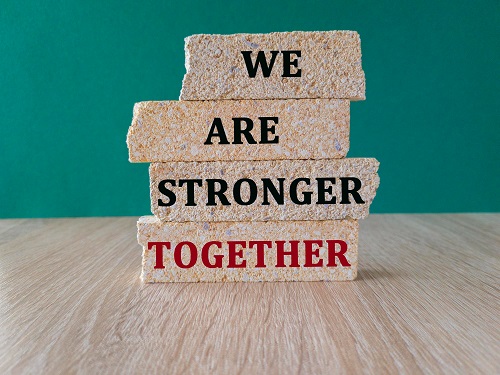Self-Respect in Relationships
Have you ever caught yourself saying “yes” when every fibre of your being wanted to say “no”? Or watched someone you care about slowly disappear into a relationship, their vibrant personality fading like watercolours in the rain? You’re not alone. In the complex dance of modern relationships, self-respect isn’t just another item on the self-improvement checklist—it’s the foundation that determines whether your relationship will soar or stumble.
Why Self-Respect Matters in Your Love Life
Let’s get real for a moment. The way you value yourself sets the tone for every interaction in your relationship. Think of self-respect as your relationship’s immune system—it protects you from toxic behaviors while nurturing the healthy aspects of your connection. When you honor your worth, you create a template for how others should treat you.
But here’s what nobody tells you: self-respect isn’t static. It’s not something you achieve once and then forget about. It’s more like a garden that needs regular tending, especially when you’re sharing your life with someone else.
Understanding True Self-Respect
Self-respect goes way beyond the “love yourself” Instagram quotes we scroll past daily. It’s that quiet certainty in your chest when someone asks you to compromise your values. It’s the courage to stand alone rather than accept treatment that diminishes you. Most importantly, it’s the understanding that you’re worthy of love and respect, even on your worst days.
Think about this: Would you want your child, best friend, or someone you deeply care about to accept less than they deserve in a relationship? Then why would you?
The Difference Between Self-Respect and Self-Esteem
While these terms often get tossed around interchangeably, they’re actually quite different. Self-esteem might fluctuate based on your latest accomplishment or setback, but self-respect is your baseline—your non-negotiable standard for how you deserve to be treated. It’s the difference between feeling good about acing a presentation (self-esteem) and knowing your worth isn’t determined by that presentation’s outcome (self-respect).
Building Strong Foundations: The Pillars of Self-Respect
Starting with Self-Worth
Your journey toward stronger self-respect starts with recognizing your inherent value. This isn’t about listing your achievements or comparing yourself to others. Instead, it’s about understanding that your worth isn’t up for debate. It exists independently of your relationship status, career success, or how many likes your last social media post received.
Try this: Take a moment to write down three non-negotiable standards for how you deserve to be treated in relationships. These aren’t preferences—they’re your baseline requirements for respect.
Setting Boundaries That Stick
Here’s where many of us stumble. We know we should have boundaries, but setting them feels like we’re being difficult or high-maintenance. Let’s flip that script: Boundaries aren’t walls that keep people out—they’re guidelines that teach people how to stay in.
Clear boundaries might sound like:
- “I need an hour to myself after work to decompress.”
- “I’m not comfortable sharing passwords, even in a committed relationship.”
- “Weekend time with my family is important to me.”
The Communication Revolution: Speaking Up with Grace
Finding Your Authentic Voice
Ever noticed how some people can disagree without being disagreeable? That’s the art of assertive communication. Instead of bottling up your feelings until they explode, or becoming passive-aggressive (we’ve all been there), try expressing your needs with both kindness and clarity.
For example, rather than saying, “You never make time for me!” try, “I really value our quality time together, and lately I’ve been missing that connection. Can we talk about finding more ways to prioritize us?”
The Power of Active Listening
Self-respect in relationships isn’t just about speaking your truth—it’s also about creating space for your partner’s perspective. When you truly listen, you’re saying, “I respect you enough to try to understand your point of view, even if I disagree.”
Choosing Partners Who Match Your Standards
When you respect yourself, you naturally attract people who respect you too. It’s like having a built-in filter that screens out those who don’t align with your values. You start noticing red flags early—not because you’re looking for them, but because they become impossible to ignore when you know your worth.
Signs of Mutual Respect in Relationships
- You both feel comfortable expressing differing opinions
- There’s no need to hide your authentic self
- You support each other’s individual growth
- Disagreements focus on understanding, not winning
- You celebrate each other’s successes without jealousy
Growing Together While Staying Individual
One of the most beautiful aspects of a relationship built on self-respect is that it doesn’t require you to shrink yourself to fit someone else’s expectations. Like two trees growing side by side, you can intertwine while maintaining your own strong roots.
Maintaining Your Identity
Keep nurturing your individual:
- Friendships outside the relationship
- Personal goals and ambitions
- Hobbies and interests
- Professional development
- Spiritual or personal growth practices
Navigating Challenges with Dignity
Every relationship faces storms. The difference is how you weather them. When both partners bring self-respect to the table, conflicts become opportunities for growth rather than power struggles.
Healthy Conflict Resolution
Remember: The goal isn’t to win the argument—it’s to understand each other better and find solutions that honor both partners’ needs. This might mean taking breaks during heated discussions, using “I” statements instead of accusations, or even seeking professional guidance when needed.
The Journey Forward: Nurturing Self-Respect Daily
Building and maintaining self-respect in relationships is an ongoing journey. Some days you’ll feel like a self-respect warrior, and others you might struggle. That’s completely normal. What matters is your commitment to honoring yourself while building meaningful connections.
Practical Steps for Strengthening Self-Respect
- Practice self-reflection regularly
- Set and maintain healthy boundaries
- Speak your truth with kindness
- Choose growth over comfort
- Celebrate your partner’s individuality
- Address disrespect early and directly
- Nurture interests outside your relationship
The Ripple Effect of Self-Respect
When you cultivate self-respect in your relationship, you’re not just improving your love life—you’re creating a template for healthy relationships that ripples out to everyone around you. You show others what’s possible when two people come together with strong foundations of self-worth.
Conclusion: Your Invitation to Greater Love
Self-respect in relationships isn’t about being perfect or demanding perfection from your partner. It’s about creating space for authentic love to flourish while honoring who you are at your core. Remember, the quality of love you accept will always reflect the level of respect you have for yourself.
As you close this article, ask yourself: What’s one small step you can take today to strengthen your self-respect? Perhaps it’s setting a boundary you’ve been avoiding, expressing a need you’ve been hiding, or simply acknowledging your worth in a moment of self-doubt.
Your journey toward stronger self-respect in relationships starts now. And trust me—future you will be grateful you took that first step.
Remember, the most profound relationship you’ll ever have is with yourself. By nurturing your self-respect, you’re not just creating the conditions for lasting love—you’re building a foundation for a life lived authentically and fully. After all, true love doesn’t dim your light; it helps you shine even brighter.




